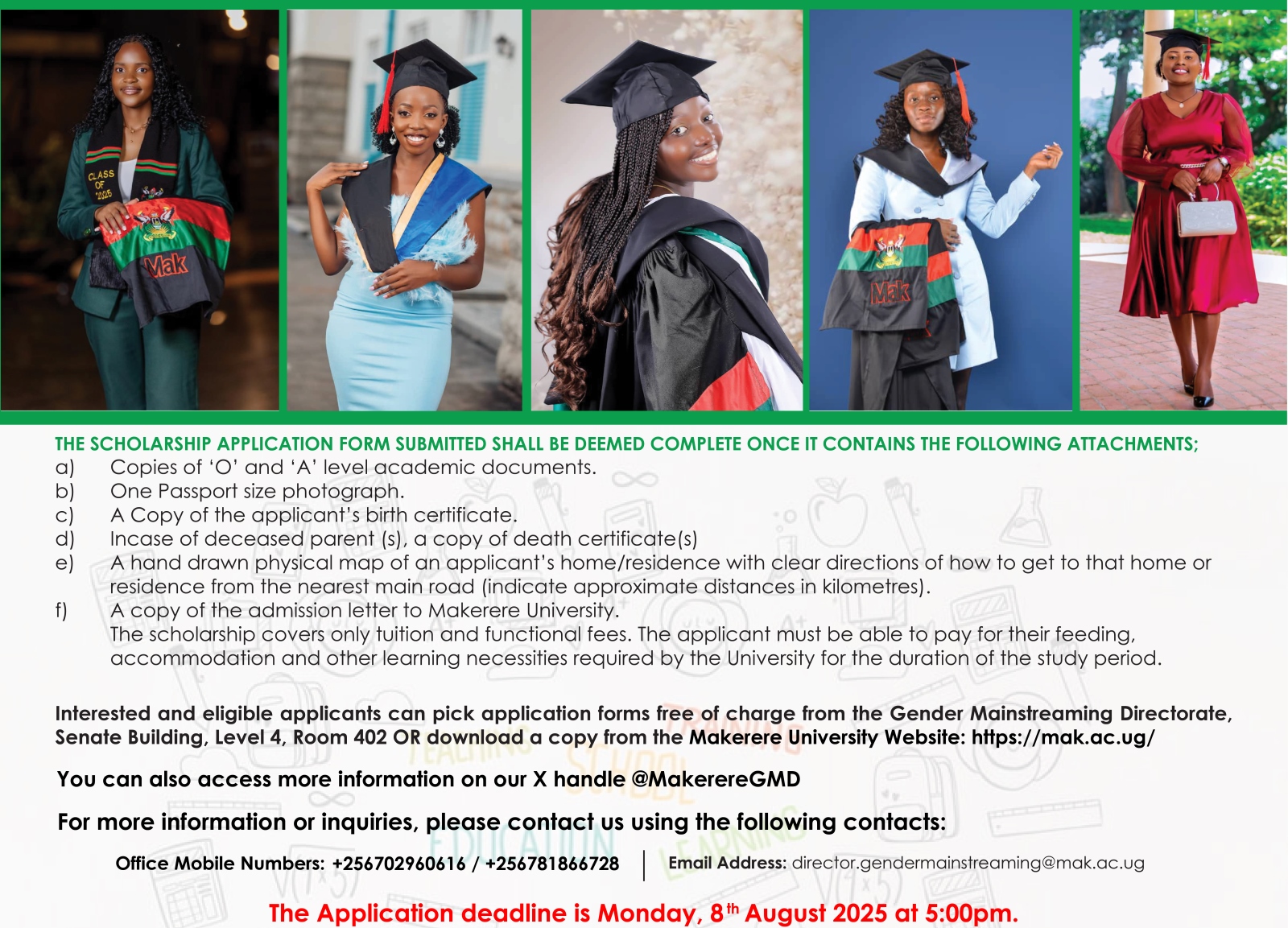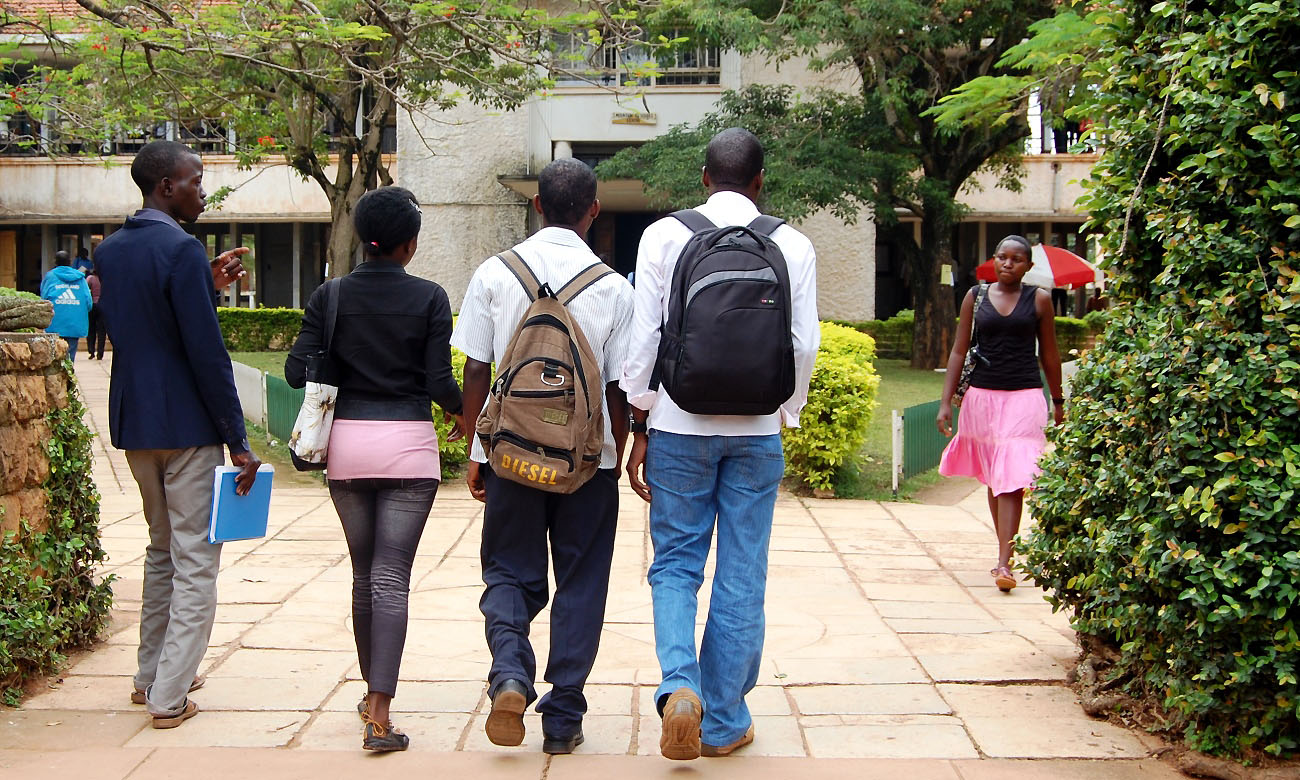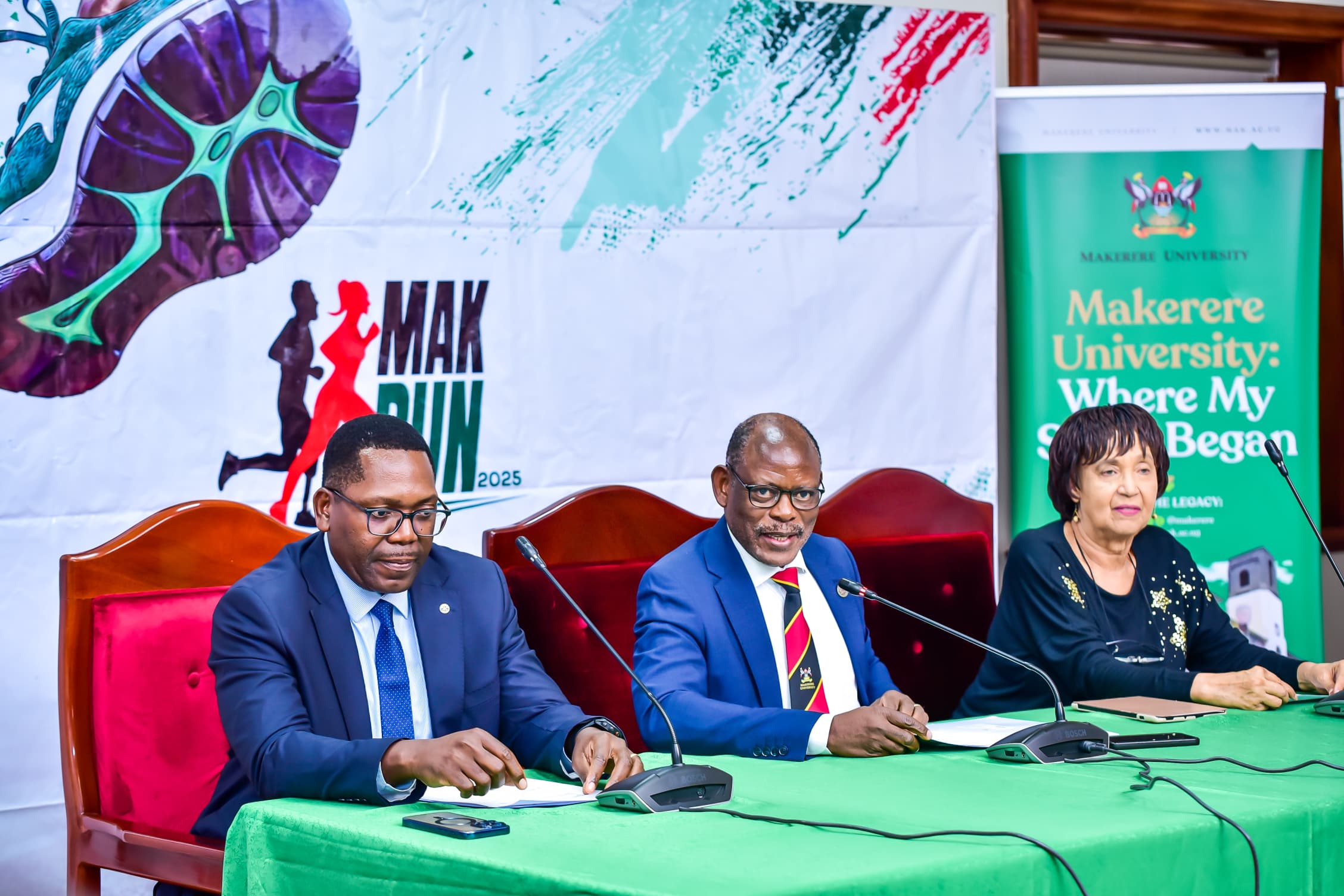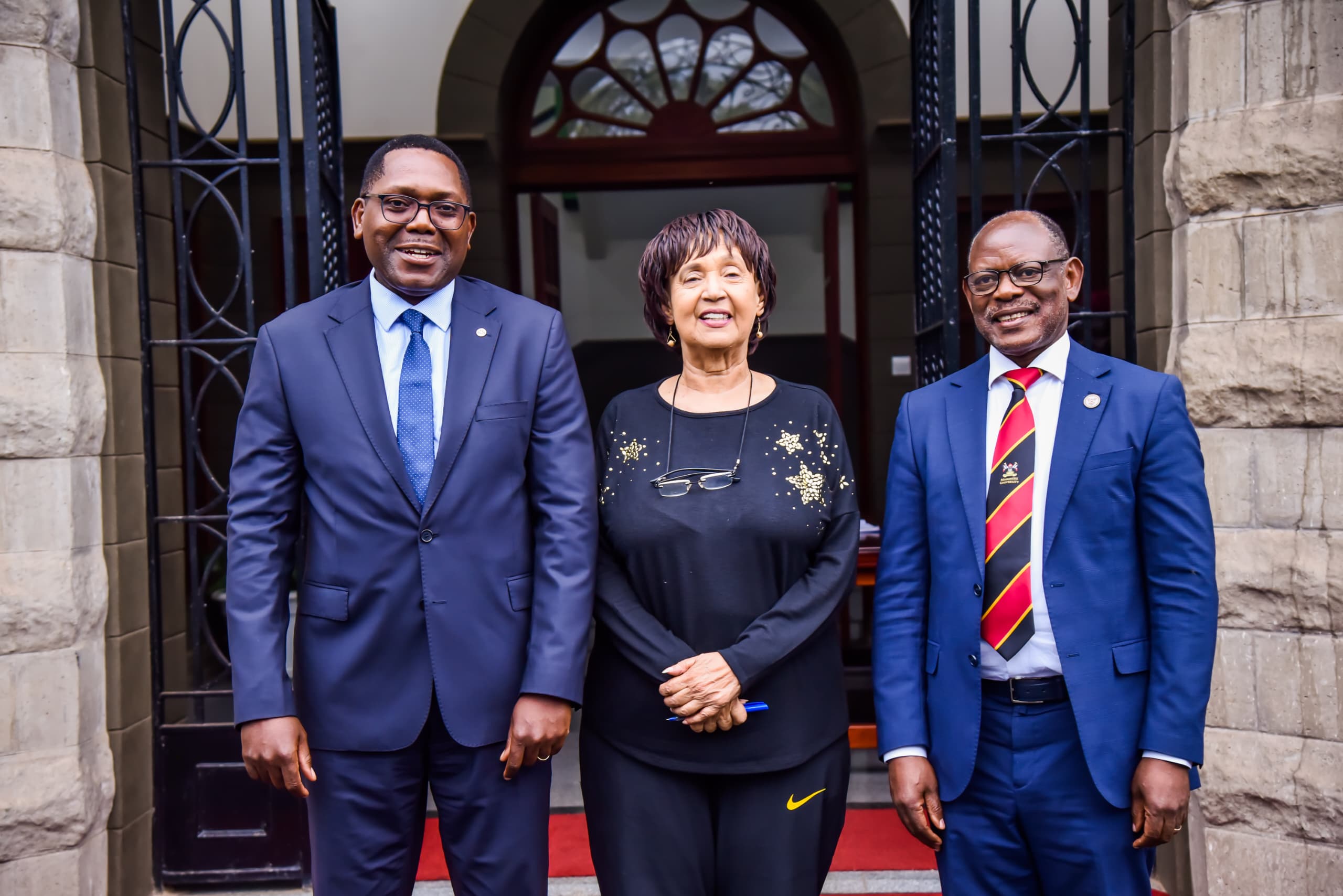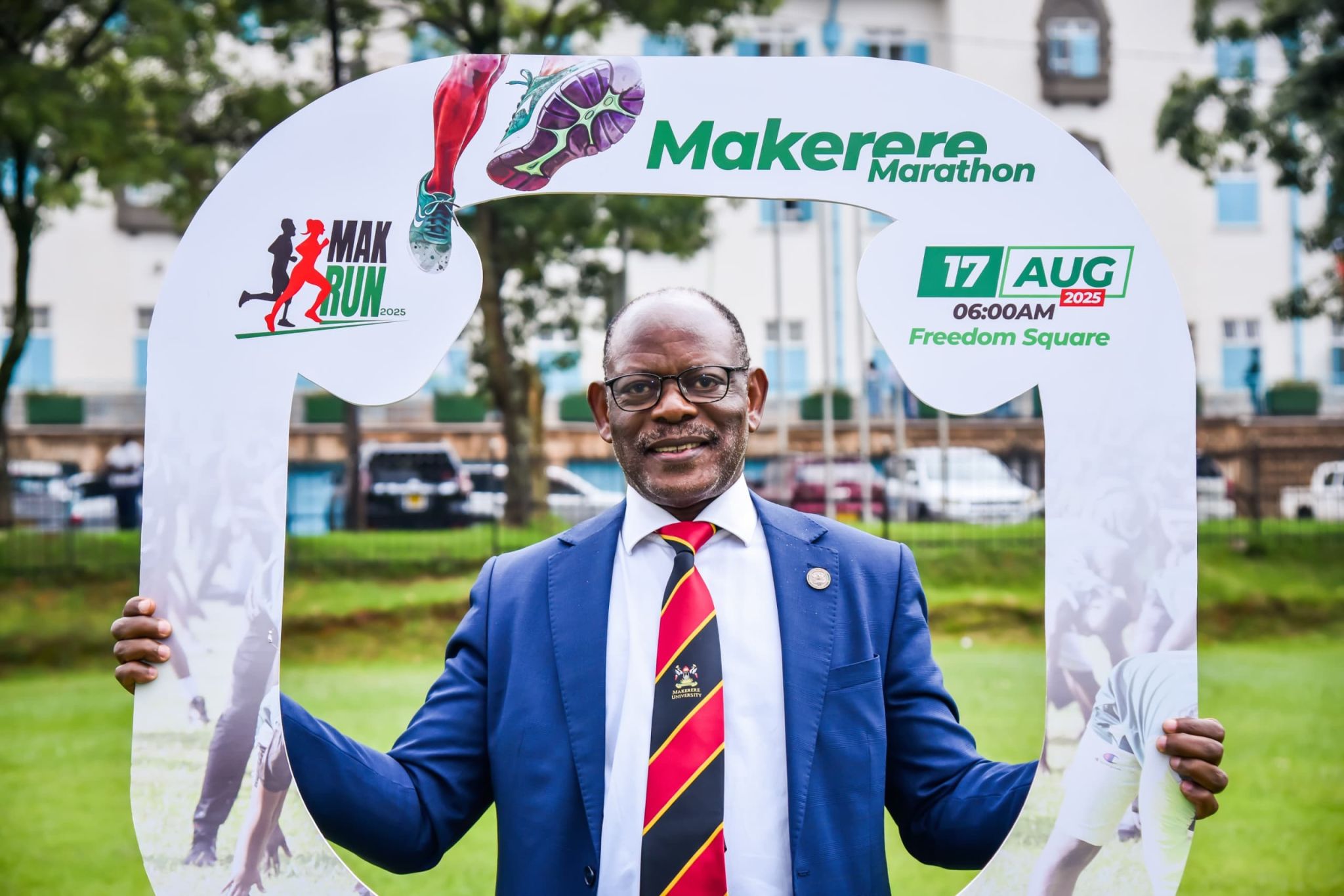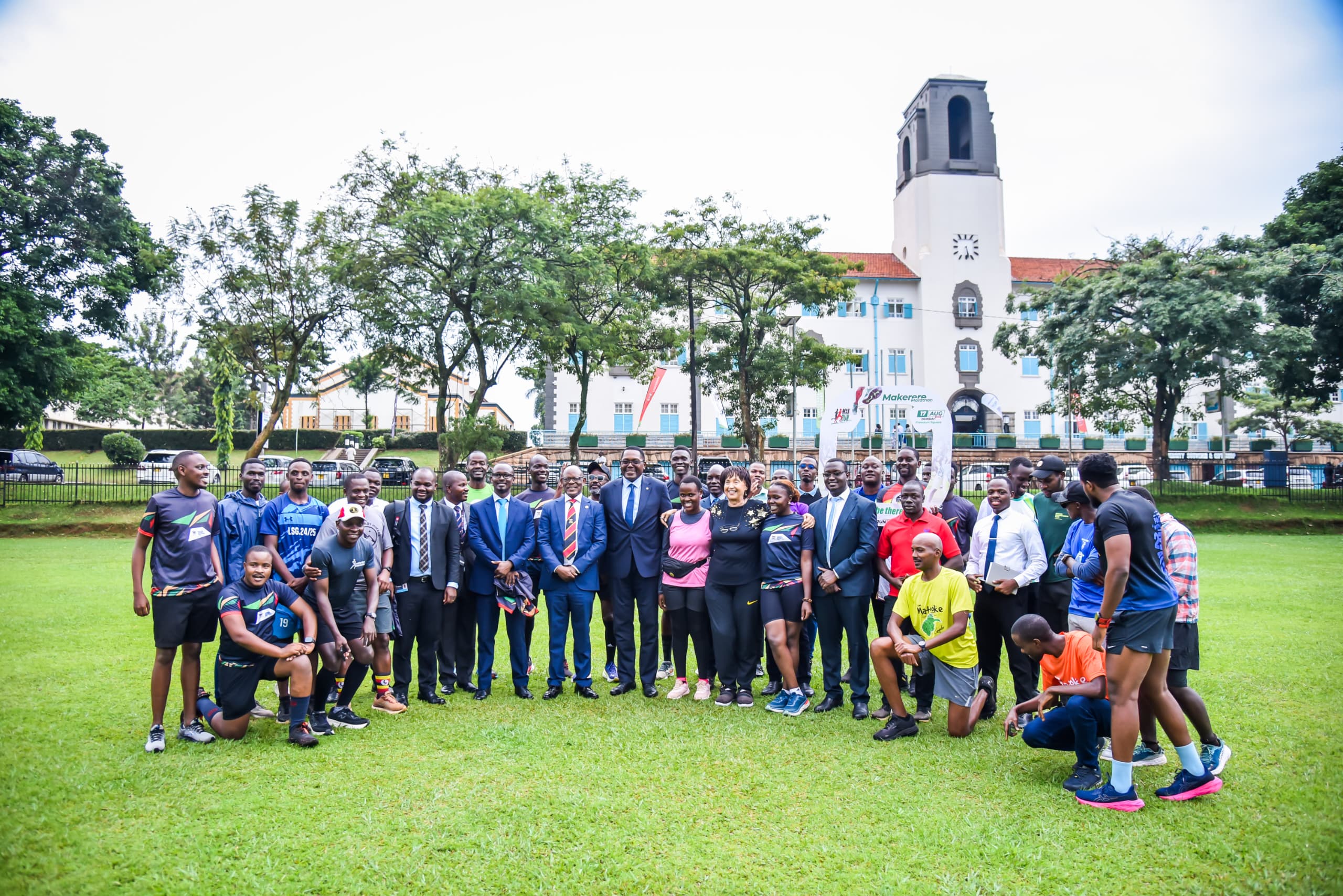The Deputy Vice Chancellor-Academic Affairs of Makerere University, Dr. Ernest Okello-Ogwang has urged PhD Graduates to disseminate research findings to decision makers, communities, media and the wider public.
“Through research we have been able to discover solutions to community problems. We need to disseminate these findings so that they can benefit society,” emphasized the Deputy Vice Chancellor Academic Affairs in a speech read by Professor Bernard Bashaasha-Principal of College of Agricultural and Environmental Sciences.
Addressing the congregation comprising invited guests, staff, alumni, students and the media during Dr. Peace Buhwamatsiko Tumuheki’s PhD research dissemination seminar on ‘Life-long learning in practice: Understanding and enabling meaningful participation of non-traditional students in University, the Deputy Vice Chancellor-Academic Affairs commended the Presenter of the day (Friday 26th May 2017)- Dr. Tumuheki for undertaking research on lifelong learning; carrying out research aimed at improving the education system in Uganda; and creating a new generation of pure knowledge when higher education has been transformed from the monopoly of the elite to the right of the masses.
“You have distinguished yourself as a champion in lifelong learning when you pointed out a topic of great importance in the future of the nation. Life-long learning in practice is a vital topic to this country and yet so little is known about it. Our institutions and nation at large are eager to listen to the latest findings. We should be and we are hungry for knowledge,” he vehemently said.
The Chair of the Session, Dr. Ronald Bisaso from the College of Education and External Studies (CEES) underscored the importance of sharing knowledge and research findings for the betterment of society. Dr. Bisaso welcomed Dr. Peace B. Tumuheki who holds a PhD in Lifelong Learning from the University of Groningen, a Master of Arts degree in Development Studies from the Institute of Social Studies in Hague, Netherlands and a Bachelor of Arts with Education degree from Makerere University to make a presentation.
Dr. Tumuheki informed the audience that the main argument of her study is that opening/increasing access alone is not good enough an effort in achieving inclusive and equitable quality education for all. Rather, it is important that in this day and age when higher education has been transformed from the monopoly of the elite to the right of the masses, higher education institutions such as universities must rethink both the way they serve the changed/diverse student populations and their position and purpose in development, as well as in relation to other forms of education.
She highlighted that since the liberalisation of higher education in Uganda in the early 1990s, a lot of changes have taken place in the organisation and provision of university education. The changes are not only seen in the diversification of providers and programmes of study but also in the nature of the students’ body for example in numbers, composition and needs of students.
Dr. Tumuheki’s research findings dwelled on understanding the experiences and participation needs of Non-Traditional Students and to contribute towards enabling their meaningful participation in university education. It was focused on the participation question and needs of students who, prior to liberalization of education, had been excluded (diploma holders) and underrepresented (mature age) in University education.
“For Non-Traditional Students to experience meaningful participation in university education, Universities must take into consideration the changing needs of their students’ population. Universities have to recognize and appreciate the fact that when they opened their doors to 'a new public' like their student populations, they acquired a new identity,” Dr. Tumuheki said.
Speaking on status of the higher education system in Uganda, the Deputy Vice Chancellor of Gulu University Prof. George Openjuru, called for the restructuring and development of university policies to benefit all categories of students. According to Prof. Openjuru, the higher education system in Uganda is becoming more diversified hence a need to reform its structure.
He appreciated the work of Dr. Peace Tumuheki that is addressing the challenges that have for a number of years affected the education system of Uganda. Prof. Openjuru believes that understanding and enabling meaningful participation of non-traditional students in higher institutions would help in bridging the knowledge-distance learning gap.
Reiterating the importance of the research, Dr. Tumuheki’s 1st Supervisor on the PhD Programme, Prof. Jacques Zeelen from the University of Groningen, Netherlands said that the research addressed the major challenges facing the education system in Uganda.
“When we look at globalization today, there is acceleration of technology and digital development and we need to work towards transformation to a sustainable society. There are more demands that we should be equipped with skills to use the latest technologies, many of which are outside the education training. Uganda’s education is a preparatory and keeps learners in schools, and then sets them out to the labour market for the rest of their lives.” Prof. Zeelen said.
The Deputy Principal-College of Education and External Studies (CEES) Dr. Anthony Mugagga Muwagga, said that the higher education system needs to be redefined to suit the basic requirements of the economy and to produce graduates who are employable.
“Having centered on lifelong learning, there are so many other issues to be addressed. We need to expand the horizon for our PhD students. Higher education is a complex system and there is need to redefine the role of Universities in education.” Dr. Mugagga Muwagga mentioned.
Contributing to the discussion, Dr. Alex Okot from the School of Distance and Lifelong Learning mentioned that the current education system in Uganda only prepares learners for passing exams, which may leave them with no practical skills. He added that the products of our education need to be equipped with marketable skills to become employable. He appealed to higher institutions of learning to review policies to improve the life of non-traditional students.
“The structure of our education system is discriminative. We have to restructure our policy to be able to sustain our needs. We need to change our postulates about the non-traditional students and we can achieve a millennium development goal. Lifelong learning is not about education institutions, but learning,” Dr. Okot mentioned.
Prior to undertaking her PhD study, she had accumulated 13 years of work experience in the students’ Registry at Makerere University. Since 2005 she served for six years as Faculty Registrar at the School of Computing and Informatics Technology-Makerere University and then for two years as College Registrar at the College of Engineering, Design, Art and Technology-Makerere University. She also taught part-time on the Bachelor of Development Studies programme in the Faculty of Arts. It is from the amalgamation of these experiences that she derived the interest to research into the lifelong learning opportunities of non-traditional students participating in university education.
Story by: Charles Iga, Volunteer,MAK Public Relations Office
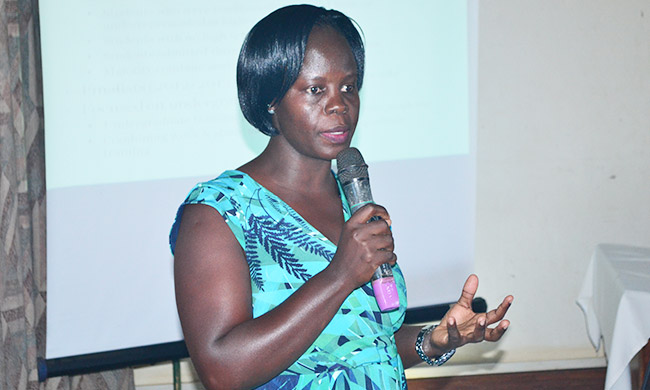

 Education2 weeks ago
Education2 weeks ago
 General1 week ago
General1 week ago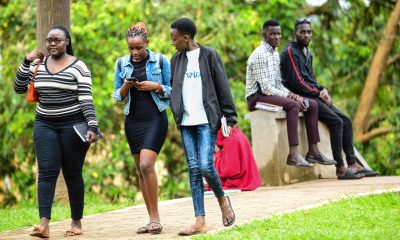
 General2 weeks ago
General2 weeks ago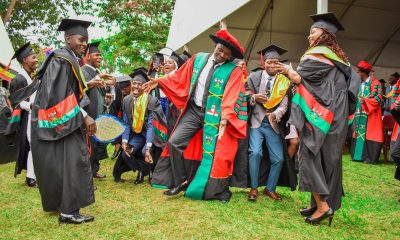
 General2 weeks ago
General2 weeks ago
 General6 days ago
General6 days ago
